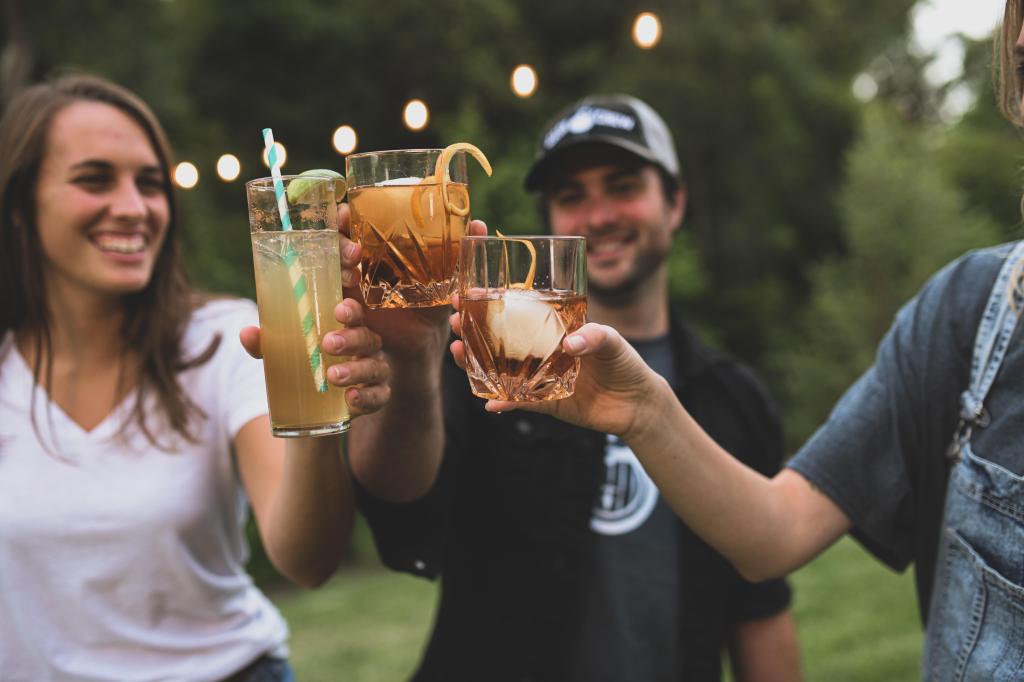For as long as there’s been alcohol, there have been people who don’t drink it. Some don’t care for the taste, some don’t like the buzz, some have religious prohibitions against it and some are recovering addicts who need to avoid it altogether.
Whatever reasons people have for not drinking, there’s an unspoken attitude by some that they’re missing out on a key part of social culture, especially when countless movies and TV shows portrays people winding down (or wooing one another) with wine and bonding over beers at bars. There’s an air of camaraderie over sharing a cocktail or clinking champagne flutes together that’s hard to capture with a basic Coke or sparkling water.
But what if you want that fun, social atmosphere without the alcohol? What if you want to go out and have fancy, alcohol-free drinks with your friends at night without being surrounded by drunk people? Where do you go for that?
Big cities like New York and Los Angeles have seen non-alcoholic options increasing on menus for a while, but the trend has spread to smaller cities and expanded to full bars, pop-up events and retail shops dedicated to sober drinking.
In fact, the Mindful Drinking Fest held on January 21 in Washington D.C. was sold out, as over 300 attendees sampled all manner of non-alcoholic beers, wines and mixed drinks. One of the event’s organizers, award-winning bartender Derek Brown, told NPR that not drinking isn’t actually new. Early bartending manuals all included plenty of non-alcoholic drinks, but post-Prohibition, the temperance movement took a hit. “People stopped treating people who don’t drink alcohol like adults,” he said.
Now temperance appears to be making a comeback with the younger generations of adults. A 2016 Heineken survey discovered that 75% of Millennials purposefully limited their alcohol intake on nights out, and Gen Zers across high-income Western nations are reportedly drinking far less than their elders. According to The Conversation, there’s a handful of reasons younger folks are far more “sober curious” than their parents were, including a sense of responsibility about their futures, greater consciousness about wellness, a better understanding of the health risks of even small amounts of alcohol and shifting attitudes about what’s cool.
But young folks aren’t the only ones hopping on the sobriety train. Even as the pandemic saw a spike in heavy drinking, it also caused a lot of people to examine their relationship with alcohol. With annual traditions like “Dry January” and “Sober October” growing in popularity, people are at least trying out the alcohol-free life for a while—what Brown refers to as an “alcoholiday.”
This growing demand for alternatives to alcohol is driving alcohol-free establishments with clever names such as Absence of Proof, Sans Bar, Spirited Away and more to pop up all over the place. And we’re not just talking about Shirley Temples or virgin daiquiris here. Today’s alcohol-free mixed drinks are far more sophisticated, with new distilled spirits, bitters, and other ingredients creating complex flavors without a sickeningly high sugar content.
Abby Ehmann owned a regular bar in New York and enjoyed her regular customers, but also saw the devasting impacts alcohol had on some of her patrons. So she opened a sober bar named Hekate in 2022. “I wanted to create that sort of vibe and community for people, but take alcohol out of the equation,” she told NBC News. “Here we have the community and the vibe without the booze.”
The culture around drinking is slowly but surely changing, and the success of events like the Mindful Drinking Fest and sober bars seems to be proving that alcohol isn’t the necessary social lubricant many believe it to be.
As Brown told NPR, “All the positive emotions we associate with alcohol—they come from just being with people and tasting delicious, wonderful things,” he said. “You don’t really need alcohol.”
Cheers to that.







































